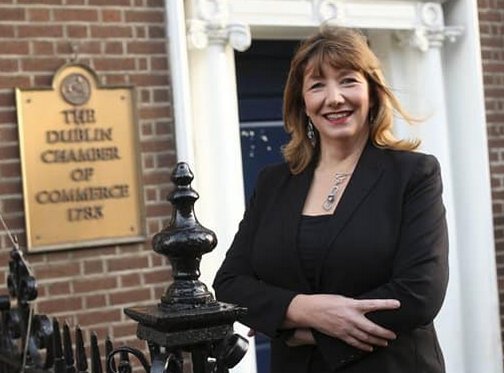Sales at home and abroad for Greater Birmingham manufacturing companies have increased to levels not experienced for over 18 months. According to figures from the latest quarterly economic survey by Greater Birmingham Chambers of Commerce (GBCC), half of the businesses surveyed increased sales and orders over the past three months. The GBCC quarterly economic survey, supported by recruitment and people development agency Katie Bard, showed that manufacturers increased home market sales to 50 per cent, up 10 per cent from the previous quarter. Orders were also buoyant with 52 per cent reporting an increase from 37 per cent in the previous quarter.
Manufacturers who increased export sales rose from 35 per cent to 50 per cent and those increasing orders were also up to 50 per cent from 36 per cent.
These figures were supported by an increasing number of manufacturers taking on more personnel. Forty-four per cent said they had increased their workforce in the past three months with 43 per cent expecting to do so in the next three months.
But the skills shortage was still evident with 75 per cent of companies saying that they had experienced difficulties in recruitment.
Paul Faulkner, chief executive of the GBCC, said: “Sales figures are extremely encouraging but we must retain a sense of proportion because we are starting from the low levels we experienced in the middle of the downturn.
“The fact that we are creating more jobs shows that confidence is slowly returning to business and reflects improving employment figures across the region. Our own experience through the Chamber Skills Hub we created 12 months ago is that there are many young people with the skills to make a positive entry into the workplace using vocational learning.
“More and more employers are finding that as their workforce ages, there is a real requirement to address a succession plan. And it’s incumbent on employers to understand their training needs and how they can start to address them.”
On the employment front, John Mortimer, co-founder and chief executive of the Angela Mortimer group and Katie Bard, said: “Although volumes of orders are not significantly increased, there is a greater sense of determination, and competitiveness in office recruitment.
“We are increasingly seeing employers acquiring talent opportunistically, when it becomes available, and perhaps beginning to invest in quality and capacity, now, in order to get ahead of the curve.
“In that case, progressive, SME market employers have a distinct advantage in the added value employment market. Some larger corporates, with more procedural corporate recruitment systems, may find that they are increasingly losing ground as confidence rises in what we anticipate will become a fiercely competitive market.”
The number of manufacturers confident that turnover would improve in the next 12 months was down slightly to 64 per cent from 66 per cent but far more (71 per cent against 54 per cent in the previous quarter) expected profitability to improve.
Service industries reporting increased UK sales were up slightly (45 per cent against 40 per cent) while orders in the home market reached 34 per cent against 32 per cent.
Export figures were also static with firms increasing sales and orders in both fields up by only two per cent to 27 per cent.
Thirty-three per cent of firms increased their workforces in the service sector over the past three months and 44 per cent predicted they would increase theirs over the next three months.
But, like manufacturers, the service sector was struggling to find the right personnel. Seventy per cent said they had experienced difficulties in recruitment, a slight improvement on the previous quarter.
Confidence figures have remained constant this year with 61 per cent anticipating an improvement in turnover in the next 12 months and 57 per cent expecting profitability to rise.
Seventy-one per cent said they were working below full capacity.
Mr Faulkner added: “Confidence is still very fragile and mixed but generally manufacturers are optimistic about the future, probably encouraged by the fact that 57 per cent, against 30 per cent in Q2, were working at full capacity.
“However, there are worrying trends in the service sector as 71 per cent said they were working below full capacity.”
The GBCC QES breakfast event, in partnership with Katie Bard, will examine the survey results for Q3.
Paul Swinney, senior economist from the Centre for Cities, and Richard Parker, partner at PWC, will also be sharing their thoughts on the Combined Authority and devolution in the region.
The event is on Friday, October 16, at PWC, 19 Cornwall Street, Birmingham B3 2DT from 7.30 for 8 to 9.30am.
















